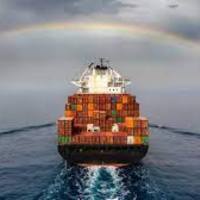In last week’s blog post, “The Export Procedures of International Maritime Cargo”, we talked about the process of exporting cargo from Australia and the various process you would have to go through based on the shipping options you choose when it’s via global maritime cargo means. This week, we look at the importing procedures of international maritime cargo and what you need to know.
Importing goods from other countries is done for various reasons across all sorts of industries as well as for business operations to run smoothly. When importing goods into Australia through maritime cargo, lead-time is an important factor as well as overhead costs too. By being aware of the ocean/sea cargo processes, you will be better for it and your business too!
Importing International Maritime Cargo via Full Container Loading (FCL) Shipping
The following includes the steps taken when international cargo is imported on FCL shipping basis:
- Arrival of Cargo: Once the cargo ship arrives at an Australia port, it will then be unloaded.
- Relocation of Cargo: After the containers are unloaded from the ship, they are relocated to the Container Yard (CY).
- Customs Clearance: The Imports Declaration will be processed by the Australian customs.
- Customs Approval: If no issues are found with the Imports Declaration, approval for customs clearance will be given. If not, either sampling or full inspections will be carried out.
- Delivery of Cargo: Once the cargo has been customs approved and cleared, delivery can occur.
Importing International Maritime Cargo via Less than Container Loading (LCL) Shipping
The following includes the steps taken when international cargo is imported on LCL shipping basis:
- Arrival of Cargo: Once the container cargo arrive at the port, they are unloaded at the CY.
- Relocation and Devanning of Cargo: Thereafter, the containers are moved to the container freight station where they will be unloaded from each container and then sorted as per the shipper information (which is also called devanning).
- Customs Clearance: Import declarations and customs processing occurs by Australia custom authorities.
- Customs Approval: if no issues are found in the imports declaration, cargo will be granted customs approval. However, if there is a discrepancy, a complete inspection or sampling will have to be carried out.
- Delivery of Cargo: Once the customs approval is received, the cargo is delivered to the customer’s warehouse/factory/offices.
Speak to our Transco Cargo agents to for all your imports requirements! Visit our Contact Us page to get in touch!

